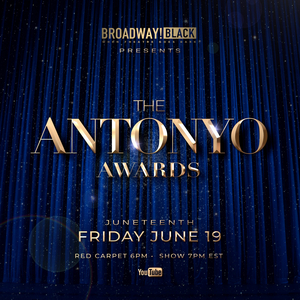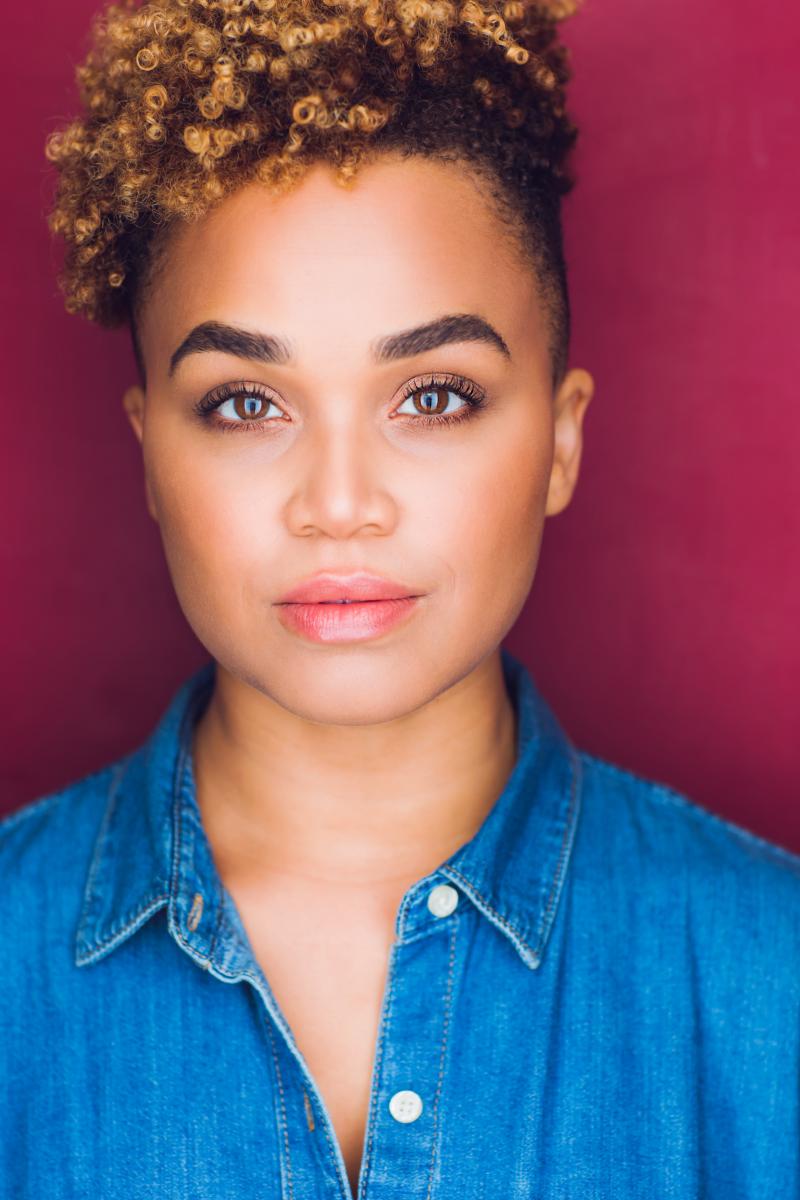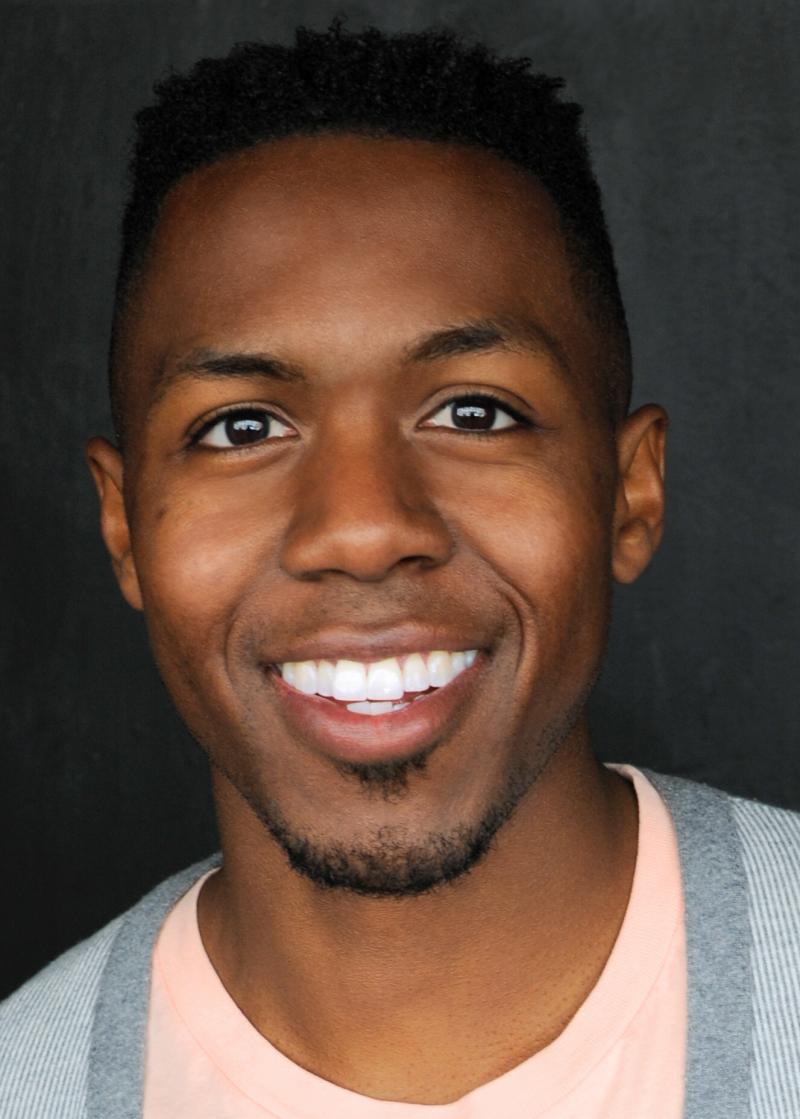Interview: Kim Exum and Eric Lockley Talk the Importance of the Antonyo Awards- Live at 7pm!

Broadway Black, the multimedia organization highlighting the achievements of Black theatre artists, will present the inaugural Antonyo Awards, a celebration of the Black Broadway and Off-Broadway community. This joyous online event will take place tonight, June 19 (7pm), also known as Juneteenth, a holiday which commemorates the end of slavery in America. The streamed ceremony will include a pre-show virtual red carpet, original musical numbers, star presenters and performers, and more.
The Antonyo Awards promise to be hilarious, uplifting and unapologetically Black. Click here to watch live at 7pm EDT!
Below, we check in with two members of the Antonyo Awards team, Kim Exum and Eric Lockley, to chat about how the event came to be and plans for the future!
How long have you wanted to do something like this and at what point did you decide to move forward with planning?
EL: I'm consistently considering how to acknowledge communities and individuals that have historically been under-appreciated. I do this with my two theater organizations, The Movement & Harlem9, and as an individual artist because I'm passionate about the FUBU mindset of "For Us, By Us". We don't require the approval of the mainstream to uplift our own! So when Drew [Shade] reached out to me to participate in Broadway Black's first ever awards ceremony, I jumped at the opportunity. As a writer on the project I knew that I'd be able to bring the fun, the funny and the joy while also highlighting the legacy of Black artists. And essential to all of this was also honoring the real challenges of being Black in America right now and historically. So I've wanted to do something like this for a long time and knew right away that it needed to happen. Now is such the right time.
KE: I have been interested in producing for a little while now. It began with me thinking about what it would be like to not have to sing for my supper. I love acting, but I also love the arts in general and I wanted to be able to execute my own vision or the collective vision of a group without necessarily focusing that vision on myself. Drew and I were on a path to producing a different project, but were stopped short by the pandemic. We came up the idea for the Antonyos on the phone one night and he simply said, "Let's do this for real!" And maybe about two days later he had an entire team together.
What kind of reaction have you gotten from within the theatre community since you announced the awards?
EL: Our community is really excited and grateful. With all the necessary uproar in our industry specifically there is a deep need to acknowledge and celebrate Black talent and resilience. People are laughing at the fact that 'ANTONYOS' is a play on the 'TONY' because it's so steeped in Black history that we remix things. And folks are thrilled to be acknowledged and seen and catered to, so at the core of all the reactions I've received is: "THANK YOU, WE NEED THIS."
KE: It has been such a positive reaction. People are super excited about seeing the show and the performances. Theres been an air of secrecy around the project in order to keep what we have been doing a surprise, and I think the community as a whole will be super satisfied with what we've done. Since the George Floyd protests and racial conversations about Broadway have taken cultural prevalence I think people in our community have been looking for a way to honor those things and combine that with the joy of what it means to be a black artist in todays world. At the time we started this we had no idea that the world would be in the state that it's in, but I'm excited to be apart of something that is both very, very black and very representative of what it means to live inside the atmosphere of joy in spite of the obstacles that come with having melanin.
I love the idea of genderless categories. How did you come to that decision?
KE: Well, I can take absolutely no credit for that. Ianne Fields Stewart, one of our writing heads, came out the gate with so many wonderful ideas, one of which was genderless categories. Ianne is both an artist and an activist, so she has this great balance of being able to create in a way that holds everyone in the room accountable. A lot of what she suggested centered the awards show and made it grounded, meaningful and progressive. So, when she suggested we do the awards in this "new" way, everyone, for the most part, was on board. Also, shout out to the Dora awards in Canada. Like all things Canadian, they're a little more advanced and instituted genderless categories in 2019.
What are your hopes for the Awards in years to come?
EL: My hope is that it garners more support and attention so that we can grow and have the backing of major companies. I want it on TV and I wanna see billboards for it eventually. But essential to that is allowing for the decision making and the power to rest in Broadway Black's creative team. My further hope is that as a society we see the value in celebrating specific cultures without assuming it undermines the whole. We can celebrate Black Broadway AND Broadway. Color-blind anything is silly. Color-WOKE is what I think we should aim for which is a way to acknowledge, celebrate and honor the specificity of each varied cultural experience.
Why should people tune in tonight?
KE: Theatre is a multi faceted art form, and one of those facets is race. Often times we limit ourselves by narrowly focusing on large commercial shows. I'm a fan of theatre, period. It does not matter where it is, so I'm hoping that when people of other races tune in, that they can begin to appreciate this awesome legacy of how theater has helped to shape blackness and more importantly black political activism.
Know that when you're watching that we are standing on a foundation built by the National Black Theatre, The Negro Ensemble Company, The New Federal Theatre, New Lafayette Theatre, Frank Silvera's Theatre of Being, The Arena Players, The Free Southern Theatre and countless of other black theaters (defunct and functioning) who have been highlighting black voices regionally for decades. People like Ed Bullins, Richard Wesley, Ossie Davis and Ruby Dee, Woody King Jr, Ntozake Shange, Amiri Baraka; these are people you should know by name just like you know Sondheim, Rodgers and Hammerstein, Neil LaBute, Jason Robert Brown, Eugene O'Neill, & Clifford Odets. The names you see on June 19th are not the beginning of a black theatrical legacy, but are the fruits of seeds that were planted in the 60s and the 70s. I want to emphasize the necessity of educating yourself about black theatre and black artists. The Antonyo's are just a gateway to appreciating the rich fabric of who black people are in this country and what we have been contributing to the theatre at large.
EL: People should tune in to celebrate, laugh, sing along, maybe shed a tear, to honor the past, to recognize the future and to be blown away by the breadth of talent in our community. This is such a spectacular celebration that you won't want to miss!
 Kim Exum (Producer)
Kim Exum (Producer)
she/her/hers
Kim Exum is a mother/actor/artist based in New York City. She currently stars as Nabulungi in the Broadway company of The Book of Mormon. Favorite credits include The Book of Mormon (2nd National Tour), The Country Wife (Red Bull Theater), For The Last Time (Theatre Row), and a series of PSAs for Planned Parenthood. In addition to acting, Kim serves as a co-host on Broadway Black's critically acclaimed Off Book: The Black Theatre Podcast. A poet and solo performance artist, Kim won VIBE magazine's inaugural Verbal Stimulation Spoken Word Showcase in which she explored current events and familial dynamics facing the black community. "An artist's duty, as far as I'm concerned, is to reflect the times" - Nina Simone. #blacklivesmatter
 Eric Lockley (Head Writer)
Eric Lockley (Head Writer)
he/him/his
Videos
